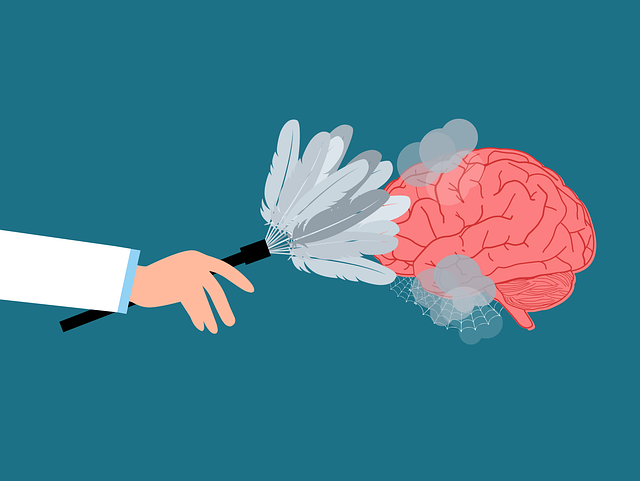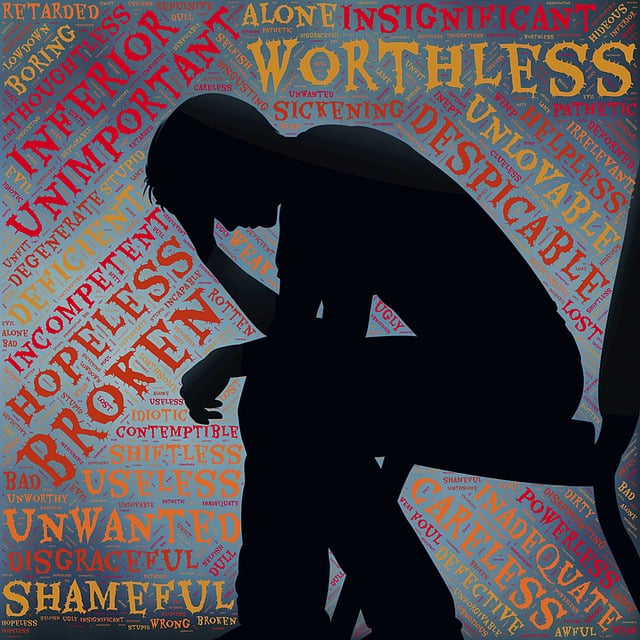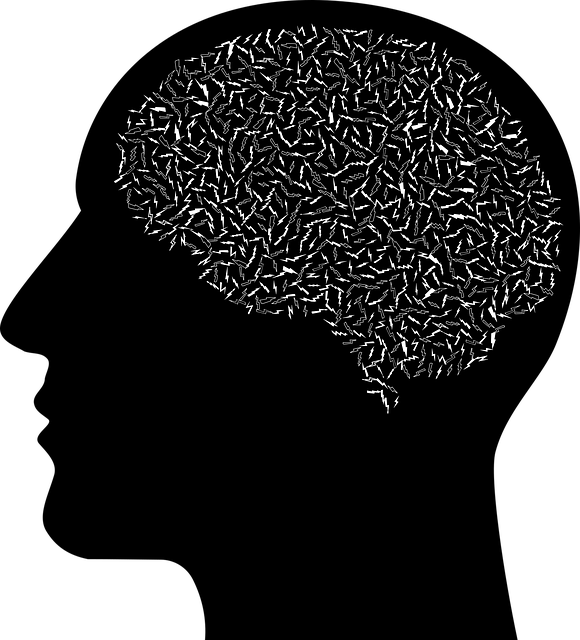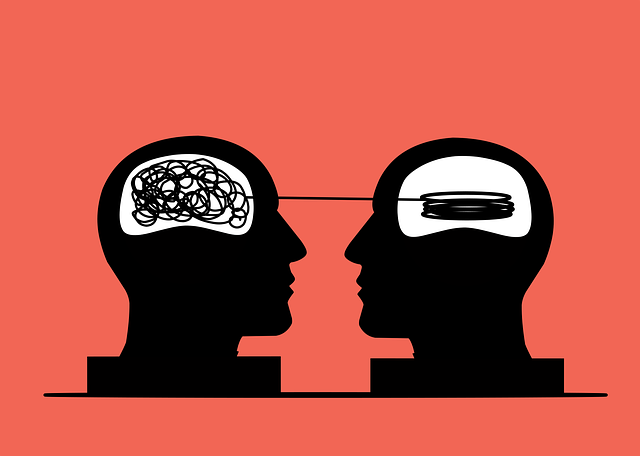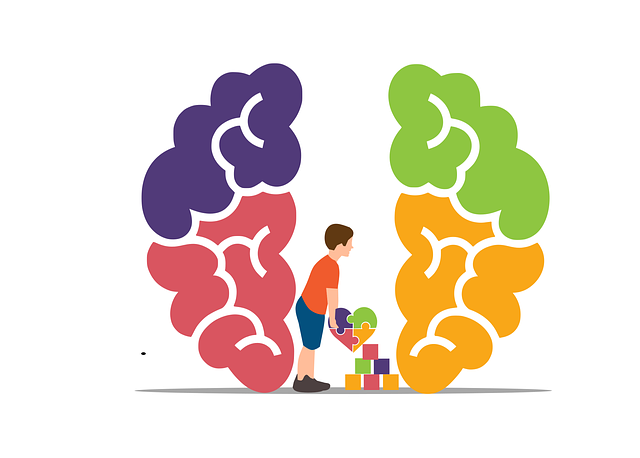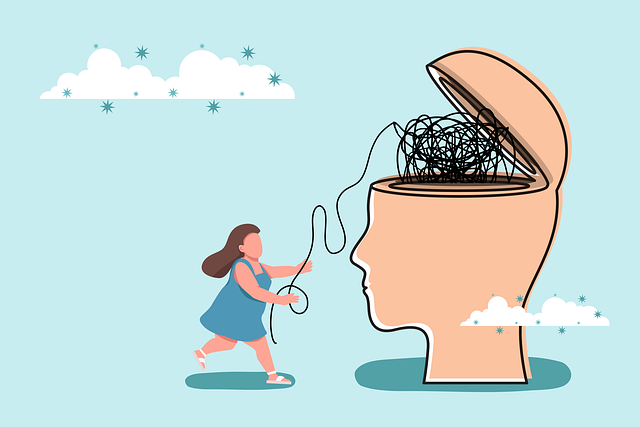Understanding mental health is key to designing effective education programs, especially in communities like Northglenn, where Terminal Illness Therapy offers vital support. Targeting diverse demographics with tailored content, such as self-care podcasts for working adults and crisis intervention guidance for students, ensures accessible tools for mental wellness improvement across age groups. Engaging multimedia content, including videos and interactive simulations, keeps participants focused and involved in learning outcomes. Practical strategies like mindfulness meditation workshops empower individuals with actionable tools for coping with complex issues like terminal illnesses. Continuous evaluation using assessment tools measures progress and guides tailored future sessions at Northglenn Terminal Illness Therapy, addressing community mental health needs effectively.
Mental health education programs play a pivotal role in fostering well-being, especially in diverse communities. This article explores the design principles behind creating effective initiatives that address mental health literacy. We begin by establishing a solid understanding of mental health and its impact on individuals and society. Then, we delve into tailoring content for specific audiences, ensuring relevance and engagement. The focus shifts to interactive strategies and practical tools for coping with stress and building resilience. Finally, evaluation methods are discussed, highlighting the significance of feedback in refining programs like Northglenn Terminal Illness Therapy.
- Understanding Mental Health: A Foundation for Education
- Identifying Target Audiences and Their Unique Needs
- Designing Engaging Content and Interactive Activities
- Incorporating Practical Strategies for Coping and Resilience
- Evaluation and Feedback: Measuring the Impact of the Program
Understanding Mental Health: A Foundation for Education

Understanding mental health is a fundamental step in designing an effective education program. It involves recognizing that mental well-being is integral to overall health and daily functioning, just as physical health. In Northglenn, where Terminal Illness Therapy has been a cornerstone of support systems, this understanding becomes even more critical. Mental health issues are diverse, ranging from common challenges like stress and anxiety to more severe conditions, and they impact individuals across all demographics.
Education programs should aim to demystify mental health by providing accurate information about various conditions, their causes, and available treatment options. Encouraging open conversations around mental health fosters a culture of support and self-care. Incorporating initiatives like Self-Care Practices, Resilience Building, and Self-Awareness Exercises can empower individuals to recognize their own mental health needs and develop strategies for maintaining or improving their well-being.
Identifying Target Audiences and Their Unique Needs

Identifying target audiences is a crucial step in designing an effective mental health education program. Each group of individuals may have unique challenges and needs when it comes to their mental wellness journey. For instance, students, working professionals, and seniors all face distinct pressures and stressors that can impact their mental health. In Northglenn, where the Terminal Illness Therapy center is located, a tailored approach is essential to address these diverse concerns. The program should consider the specific issues faced by the local community, such as stress related to work-life balance or unique challenges presented by aging populations.
Understanding these needs allows for the creation of relevant and engaging content. For example, a Mental Wellness Podcast Series Production could cater to working adults seeking practical strategies for managing stress through self-care techniques. Alternatively, Crisis Intervention Guidance might be more suitable for students navigating academic pressures and personal crises. By recognizing and addressing these varying requirements, the education program can offer valuable resources, ensuring that everyone from teenagers to seniors has access to the tools needed for Self-Care Routine Development for Better Mental Health.
Designing Engaging Content and Interactive Activities

Designing engaging content is a key aspect of creating an effective mental health education program. The curriculum should be tailored to diverse learning styles, incorporating various multimedia elements such as videos, interactive simulations, and relatable case studies. These methods can help individuals with different preferences stay focused and actively participate in their healing journey. For instance, incorporating real-life scenarios at Northglenn Terminal Illness Therapy can foster empathy building strategies among participants.
Interactive activities are another vital component that enhances learning outcomes. Incorporating exercises like role-playing, group discussions, and creative expression through art or writing can promote active engagement. Techniques such as mindfulness meditation and mood management skills can be taught through interactive workshops, encouraging participants to practice these techniques together. By making the education program dynamic and participant-centric, learners are more likely to retain information and apply it in their daily lives.
Incorporating Practical Strategies for Coping and Resilience

Incorporating practical strategies for coping and resilience is a vital component of any effective mental health education program, especially when addressing complex issues like terminal illnesses. Programs designed to support individuals facing these challenges should go beyond theoretical knowledge and empower participants with actionable tools. For instance, teaching self-care practices tailored to managing stress and grief can significantly enhance resilience in the face of adversity. Encouraging open conversations about mental health, as seen in Northglenn Terminal Illness Therapy initiatives, creates a supportive environment where individuals learn to navigate their emotions and build coping mechanisms.
The curriculum should also explore advocacy and policy analysis aspects, fostering awareness about systemic changes that support mental well-being. By combining practical skills with knowledge of mental health policies, participants can become agents of positive change in their communities. This comprehensive approach ensures that education goes beyond individual growth, contributing to a broader Mental Health Awareness and Advocacy culture that addresses societal gaps in care and support.
Evaluation and Feedback: Measuring the Impact of the Program

Evaluating the impact of a mental health education program is an essential step in determining its effectiveness and identifying areas for improvement. At Northglenn Terminal Illness Therapy, we utilize various assessment tools to gauge participants’ progress and emotional well-being before, during, and after the program. This involves collecting quantitative data through surveys and questionnaires that measure the adoption of Mind Over Matter Principles and improvements in Emotional Regulation and Intelligence.
By comparing pre- and post-program assessments, our team can quantify the positive changes experienced by individuals who have gone through the curriculum. These insights enable us to tailor future sessions, ensuring that we address the most pressing needs of our community. The feedback loop created through this evaluation process is vital for fostering continuous improvement in our mental health education program.
Mental health education programs, like those tailored for Northglenn communities facing terminal illness, thrive on a well-rounded design. By establishing a strong foundation in understanding mental health, identifying diverse audience needs, creating engaging content, and incorporating practical coping strategies, we can foster resilience. Evaluating the program’s impact through feedback allows for continuous improvement, ensuring that resources like Northglenn Terminal Illness Therapy remain relevant and effective in supporting community well-being.

